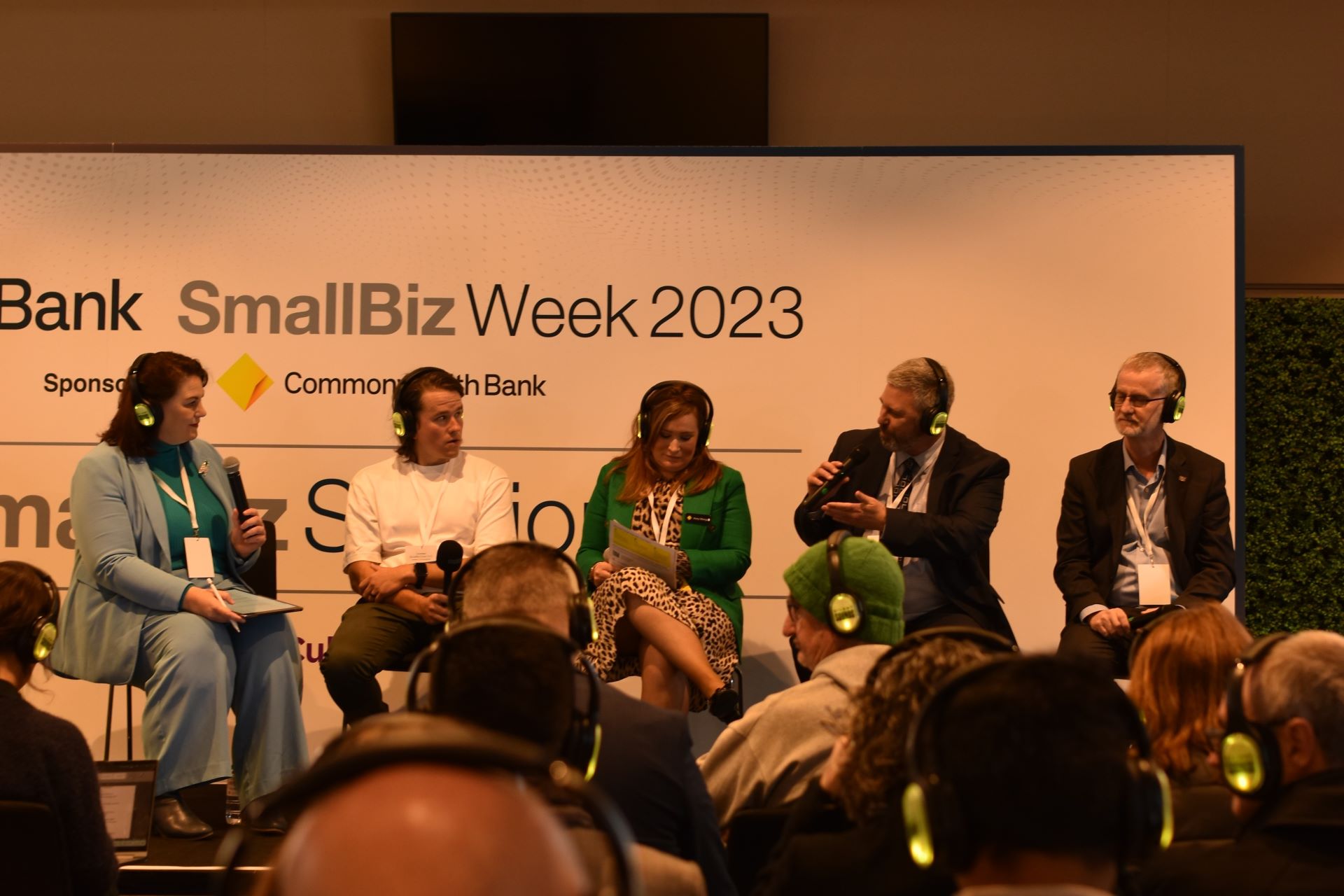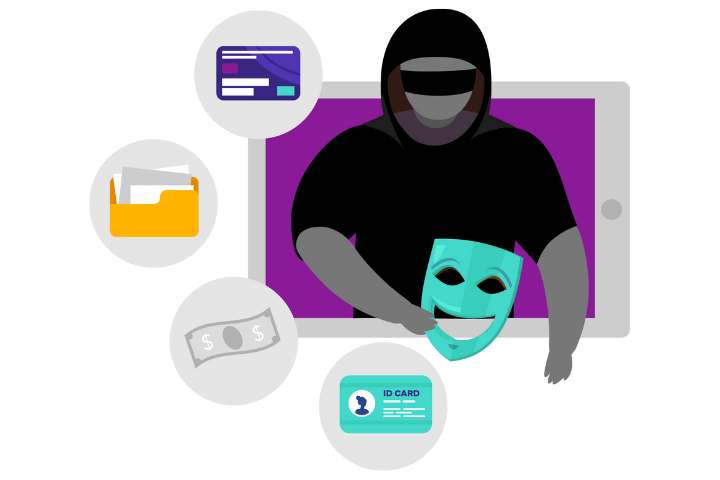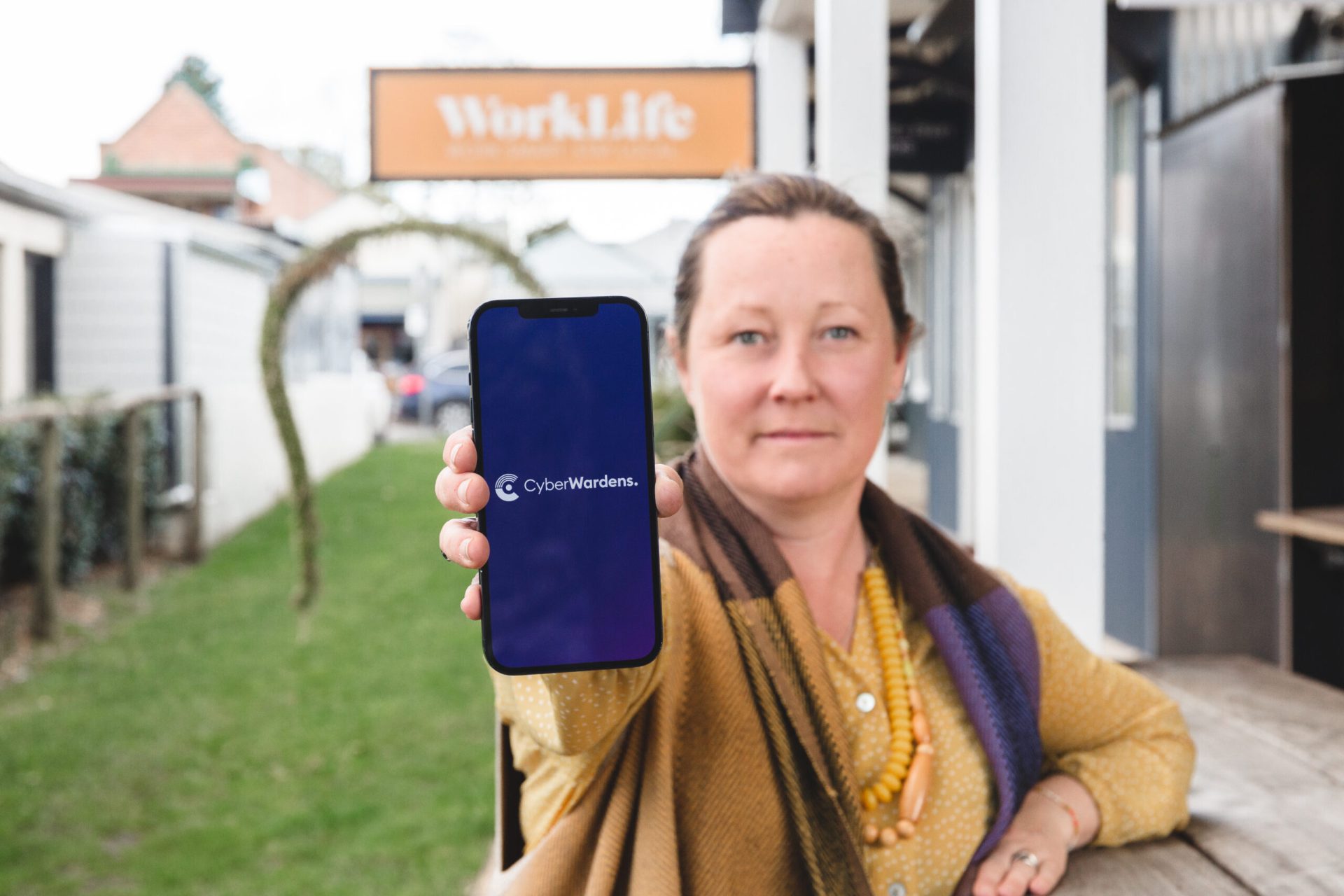
Top lessons from SmallBiz Week
Last month, our team was on the ground at CommBank SmallBiz week, meeting entrepreneurs, small business owners and industry experts.
Like you, every small business owner who visited the Cyber Wardens stall shared their concerns for keeping their small business safe.
Thankfully, the Cyber Wardens team sat down with experts from Telstra, CommBank and across the small business landscape to unpick how small business is targeted by cyber criminals, and what you can do to lock your digital doors:

1. Cyber criminals are… targeting you personally
Heading on holidays? Whilst it is tempting to set an out-of-office reminding people of your holiday plans, keep the details to a minimum.
By sharing specific details about your travel plans, your out-of-office message is giving cyber criminals the information they need to impersonate you and execute a ‘spear-phishing’ attack on your business. This could trick your team into redirecting payments
MINIMISE THE RISK
- Keep your out-of-office message to the "must know" details.
- Before heading out on leave check in with your finance team, reminding them of the heightened risk for spear-phishing attacks.
2. Cyber criminals are…using your brand to swindle your customers with fake invoices
Cyber criminals are pretending to be actual small businesses. They’ll send spoof invoices to your customers, redirecting and stealing thousands in customer funds.
If you email has been hacked, cyber criminals can even send these fake emails from your own email, making them appear legitimate.

MINIMISE THE RISK
- Confirm all invoices with the supplier via a trusted phone number, not a number included on an invoice you are concerned is fake.
- Investigate if invoice encryption software could offer additional protection to your business.
3. Cyber criminals are…breaking in using your weak passwords.
Passwords really are your first line of defence – the keys to your business. If you are reusing a simple password then having one compromised account is like giving cyber criminals the master key to your entire business.
Make your passwords strong and unique, don’t share them, use password managers and bulk up security with multi-factor authentication.
MINIMISE THE RISK
- Upgrade to longer passphrases. Easier to remember, harder to crack.
- Keep your passwords unique.
- Turn on multi-factor authentication on all your services
- Use a password manager
4. Cyber criminals are… constantly changing their tactics.
Sharing information on what threats you’ve experienced helps everyone. We need more people to share their story to help break the business model of cyber crimes.
MINIMISE THE RISK
- Report cyber crime and attacks to cyber.gov.au
- Stop a scam by reporting it to Scamwatch
- Share your story with fellow small business owners
Lock it up
Looking at the above, you can see that having a strong password is as important as having a good lock on your front door.
If your passwords are weak in any way, consider getting yourself an upgrade, and creating new ones.
Your passwords are the digital locks to your business, your identity and your salary.
Don’t leave your digital doors wide open – lock them up properly!





